If you are one of those born in the 80s and 90s, you would recall that reading books were as important as brushing your teeth or having lunch. Family members and teachers made it compulsory for students to read books. At some point, it became a competition as you wanted to be among those who have read a particular book so you can boast of it.
Nigeria is blessed with great Authors and Novelists. The works of Chinua Achebe, Cyprian Ekwensi, Wole Soyinka, and Chimamanda Ngozi Adichie, among others, cannot be underestimated. All who read their books would most likely feel the authors’ emotions conveyed in their writing. These authors have written books used in the 80s and 90s by most secondary schools in the study of Literature.
Our lives were positively affected by those books we read then, primarily through learning from the story’s morals. The memory of these books used in those days are still fresh in our heads and bring back memories of our childhood.
Let’s take a trip down memory lane as we examine books Nigerians born in the 80s and 90s will remember. These throwback books are arranged in no specific order. So, how many of these throwback books did you read or know?
Table of Contents
A Trip Down the Memory Lane: 10 Books Nigerians Born in the 80s and 90s will Remember
-
Chike and the River

The first book down memory lane on the list is Chike and the River, an exciting book written by one of the greatest writers of the 21st century, Chinua Achebe. This book features Chike, an eleven-year-old boy who has dreamt of making a trip to Asaba from his village of Umuofia in a ferry boat but has no money to pay for the ride. In the end, he was helped by a friend, SMOG, and eventually made the trip to Asaba. Chike soon discovered that the life he had dreamt of in the city of Asaba was a lot different from what he had expected. He had both terrifying and happy moments as he summoned the courage to go back home. He became the only child to survive crossing the river.
-
Things Fall Apart
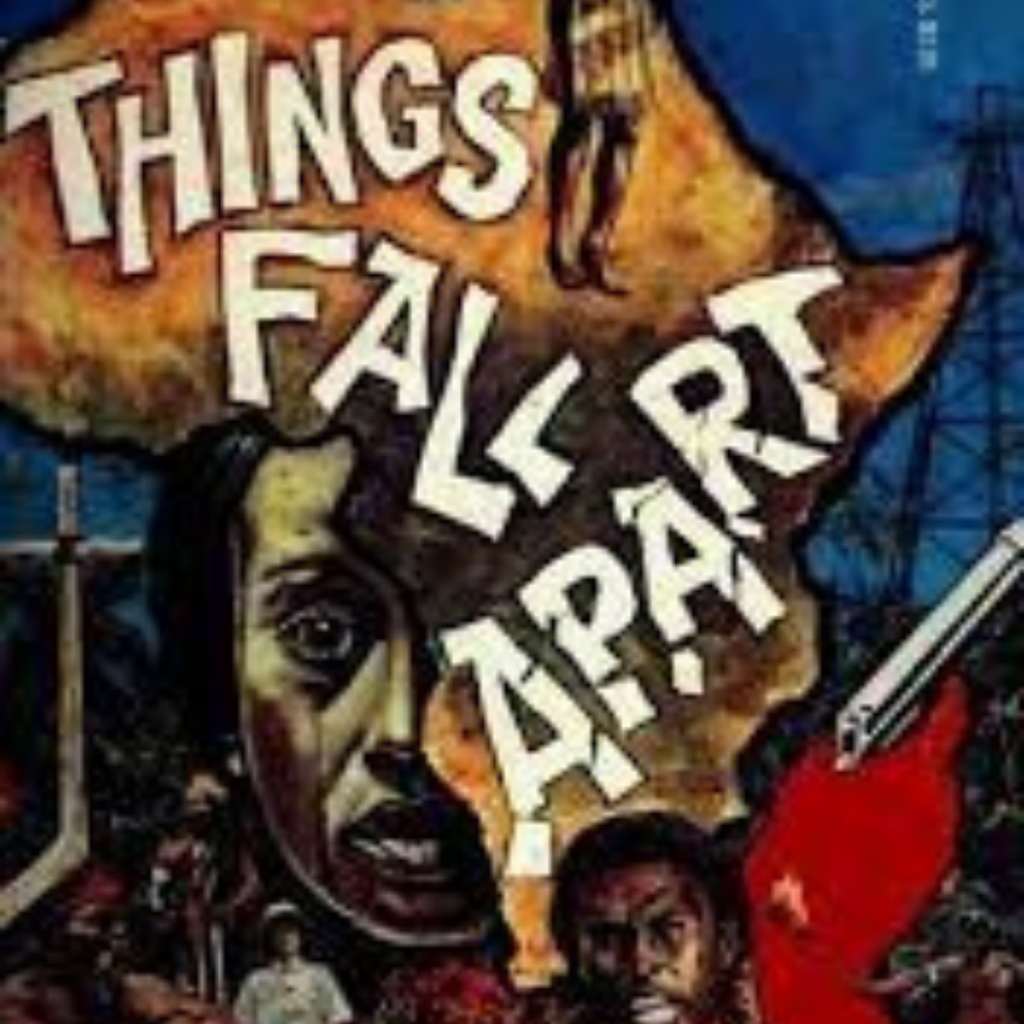
The second book down memory lane is Things Fall Apart. Famous Nigerian writer Chinua Achebe authored this book. It was his very first novel which became the Classic of International Literature and was read by virtually all Nigerian schools at the time.
The book summarises some of the effects of colonialism on the native people of Africa. It featured the leader of an Igbo community (Umuofia) named Okonkwo, who was banished for seven years from his clan for accidentally killing a clansman. He was a wrestler, farmer, and an extraordinary family provider. He had a son (Nwoye) who he called ‘lazy’ and feared he would take after his father (Udoka). So, he became the custodian of Ikemefuna, a boy Umuofia got from settling the dispute between them and the neighbouring village.
Okonkwo and his son grew very fond of Ikemefuna, but the gods had chosen that he should die. After his death, Okonkwo suffered great hardships as his daughter became sick, and he was banished from his hometown to his mother’s town. On his return from banishment, Okonkwo found out that the white people had brought Christianity to Umuofia and had converted many of their youths.
In the end, Okonkwo, a great and respected warrior, committed suicide after he beheaded one of the messengers of the white government as he tried to fight against the spread of Christianity in his hometown. He thought his people would back him up but was ashamed to see that he stood alone in the quest. The moral of the story is that violence and pride can lead to an individual’s downfall.
-
An African Night’s Entertainment
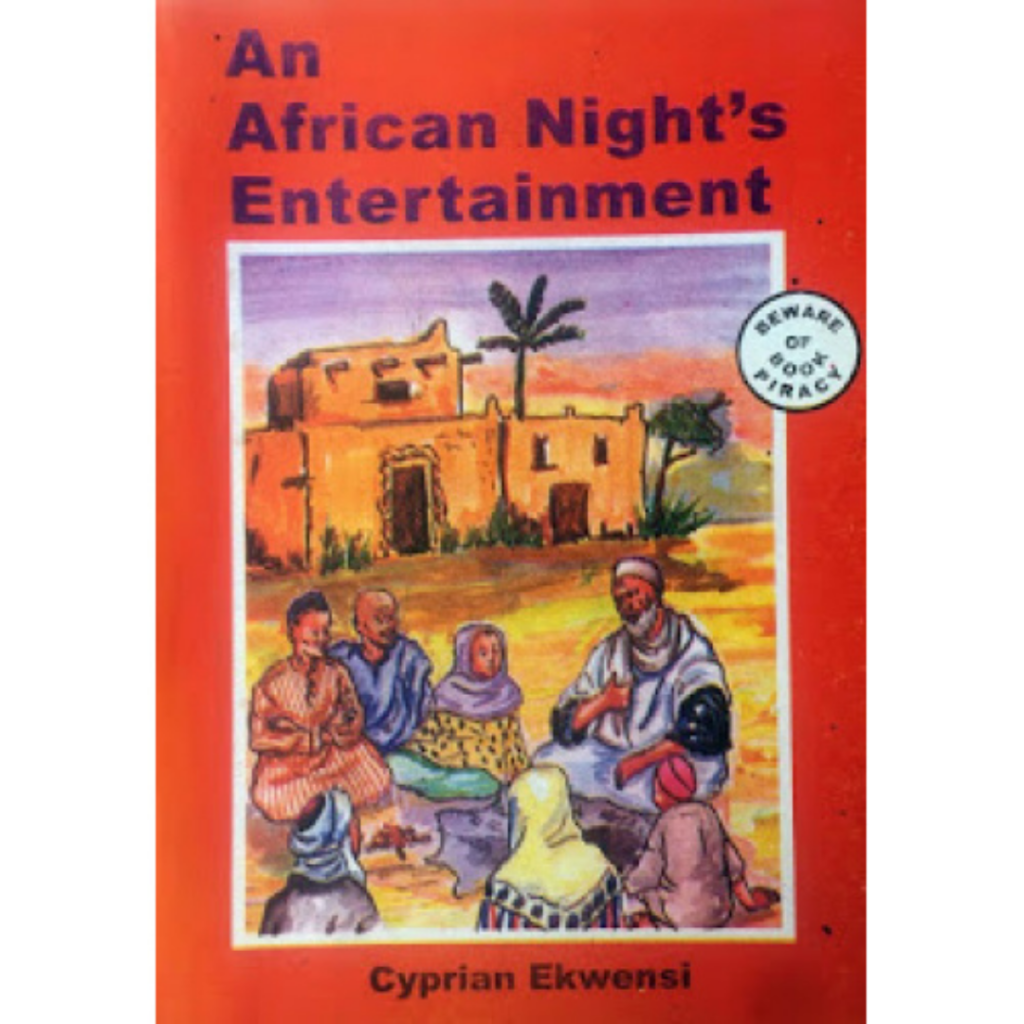
The third book down memory lane is An African Night’s Entertainment, authored by famous Nigerian author and novelist Chief Cyprian Odiatu Duaka Ekwensi. The book features a rich man, Shehu, who, in search of a child, took advantage of poor Abu to take his betrothed wife, Zainobe. Abu then went in search of vengeance and faced great ordeals that almost claimed his life.
The book ends with Shehu’s son taking his father’s life. The book helps readers identify how the quest for vengeance could lead people to do unthinkable and unjustifiable things. The book also revealed how revenge could lead to great regrets and irreparable damages. The moral of the story is that vengeance belongs to God and that we should always learn to accept God’s will.
-
Eze Goes to School
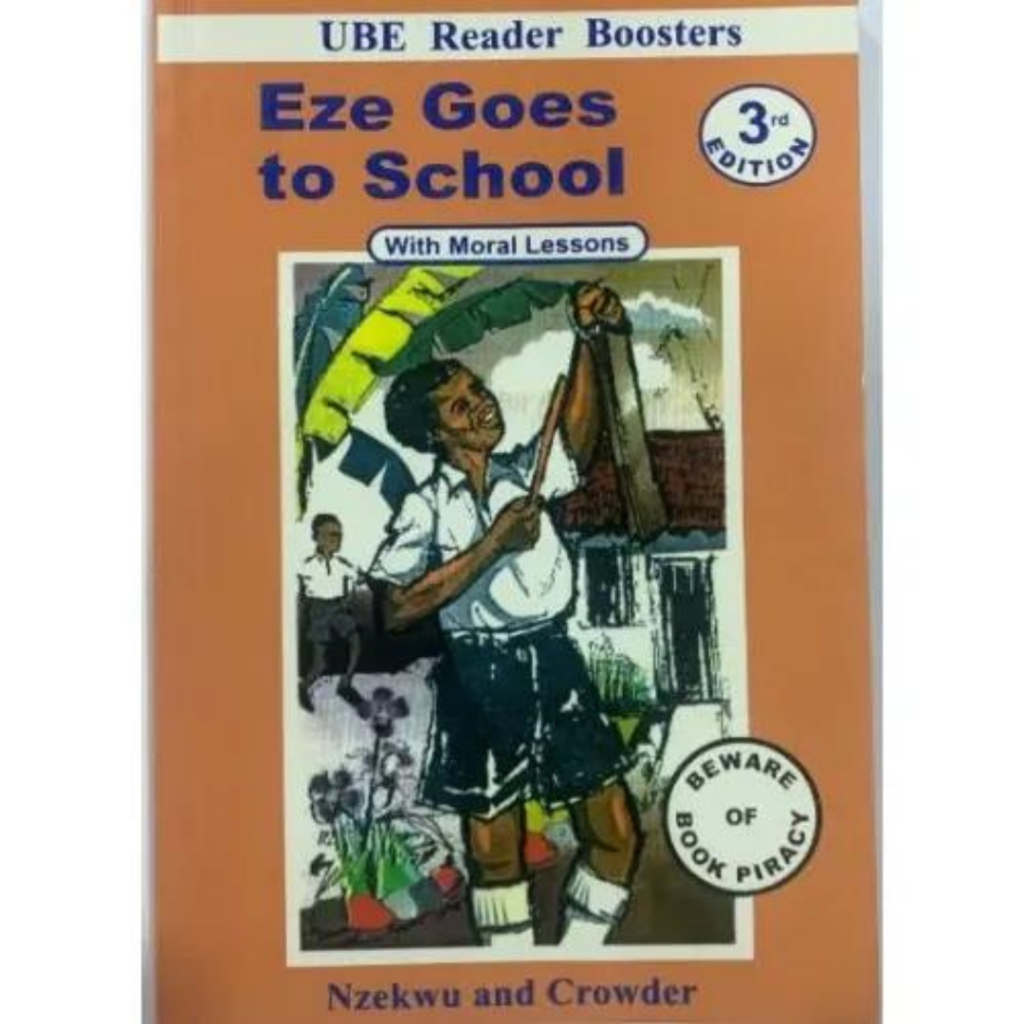
Travelling down memory lane, the fourth book, Eze Goes to School, is one of the most popular literature books read by many students of the 80s and 90s. Authored by Onuora Nzekwu and Michael Crowder, the book teaches us that courage and focus are key to succeeding in life.
Eze is a young boy who, despite his poor background, tried to get into school, having realized the importance of education in his society. He faced many challenges and opposition, especially his father’s death. Still, he was resilient and determined never to give up. In the end, he embraces success after completing his education. The book emphasizes the importance of education and encourages young children to strive to achieve success continuously.
Subscribe to our Newsletter for more interesting content
-
The Incorruptible Judge
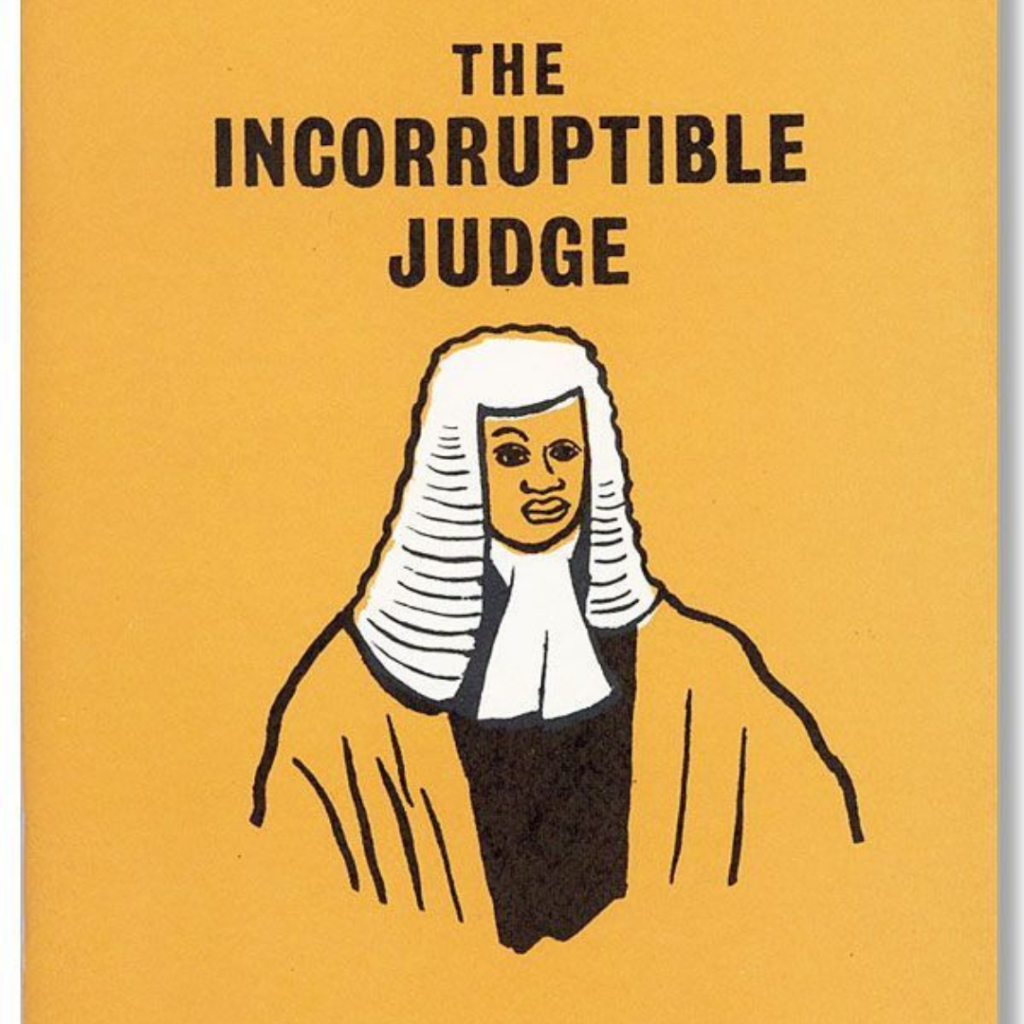
The fifth book down memory lane is ‘The Incorruptible Judge.’ Authored by Olu Olagoke, the play centered on Ajala, a young graduate and job seeker who was compelled to give a bribe to secure a job as a clerk with the government.
He reported this to a police officer who gave him some marked Pound notes to give to the man, Mr. Agbalowomeri. The man was implicated and tried for his offense. He then tried again to bribe the judge to rule the case in favor of him. But the judge was a righteous man who refused the bribe and served justice as appropriate.
The moral of the story is that we should never abuse or exercise power over others’ rights just because we are in a position of authority. Instead, we should use our power wisely and to the benefit of everyone.
-
The Drummer Boy
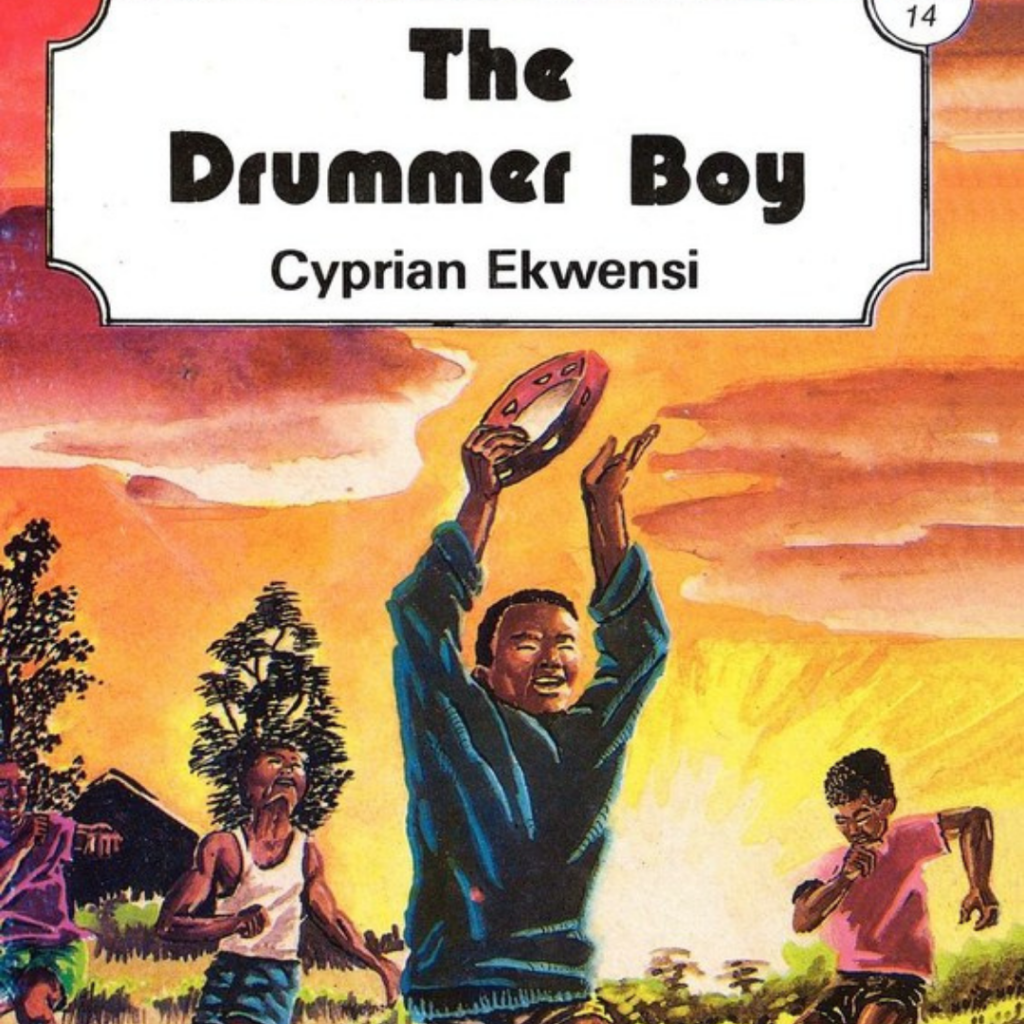
Another trip down memory lane reveals the sixth book, The Drummer Boy, authored by Cyprian Ekwensi. It is one of the recommended literature books for Junior Secondary Students in the 80s and 90s. It features a blind boy called Akin, who is gifted with the ability to play the drums and sing melodious songs, which bring joy and happiness to everyone who listens to it. As a result, he became the focus of attention for good and criminal-minded citizens.
Akin had good people (madam Bisi, Nurse Joe, Marshall, Fletcher, and Alike) to help him, yet criminals who posed as friends (Albert and his three other accomplices) robbed him of his earnings. Akin later realizes this as he tries to make himself more useful and find his way back home. The moral of this story is that no matter the challenge we are born with or face in life, great success awaits us if we would only thread on the right path.
-
Without a Silver Spoon
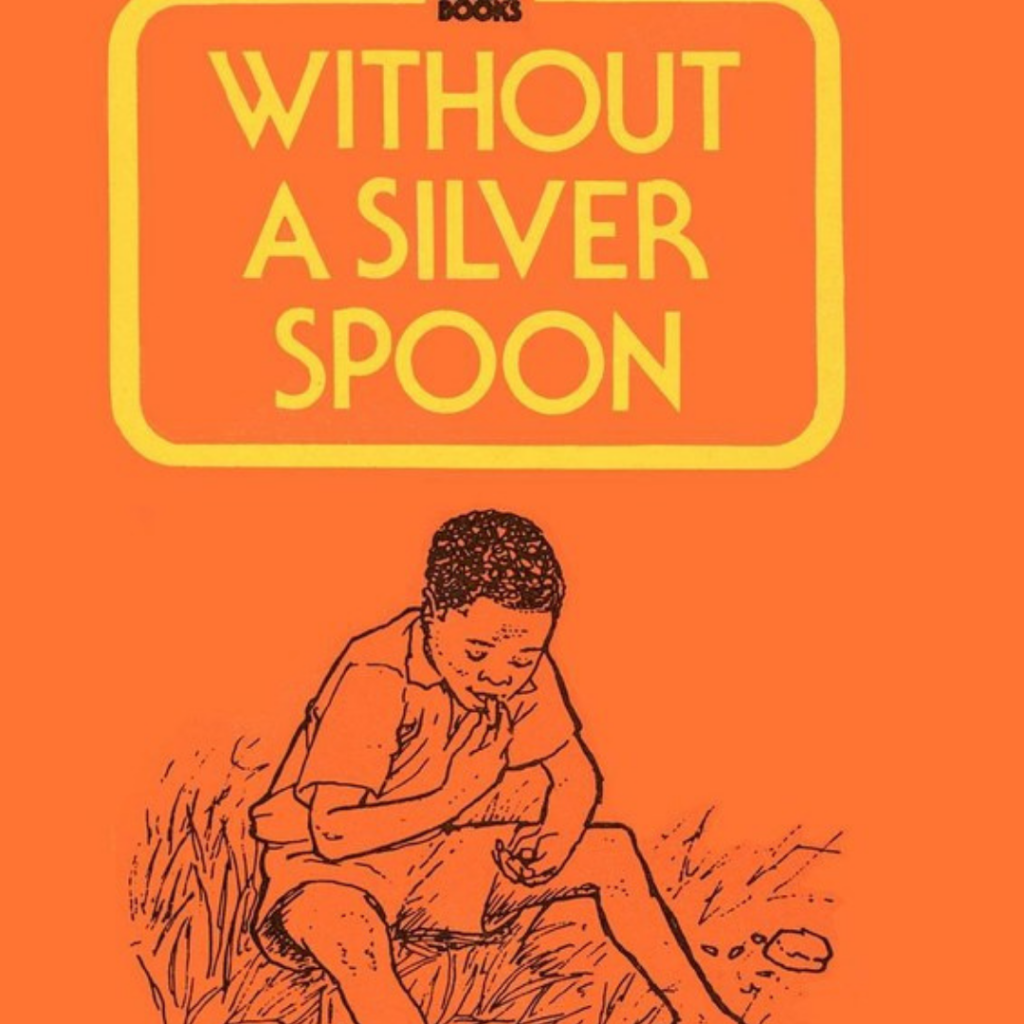
Going down the memory lane, Without a Silver Spoon is a book by Eddie Iroh and teaches that honesty is the best policy. It is a story about a boy called Ure who was born into a poor but honest home and worked as a houseboy in the house of his teacher (Mr. Steve) to be able to pay his school fees.
Unfortunately, Mr. Steve got transferred, and Ure had to go live with his Uncle in Port – Harcourt who promised to send him to school but instead made him a hawker. Ure soon had street friends who formed a gang and went on a robbery mission. However, Ure’s moral upbringing did not let him conceal the truth as he confessed his crime and was forgiven. His uncle concluded that sending him back to school was the best option.
The moral of the story is that we should never forget our moral upbringing anywhere we find ourselves and that great success awaits us if we continue on the right path.
-
Sugar girl
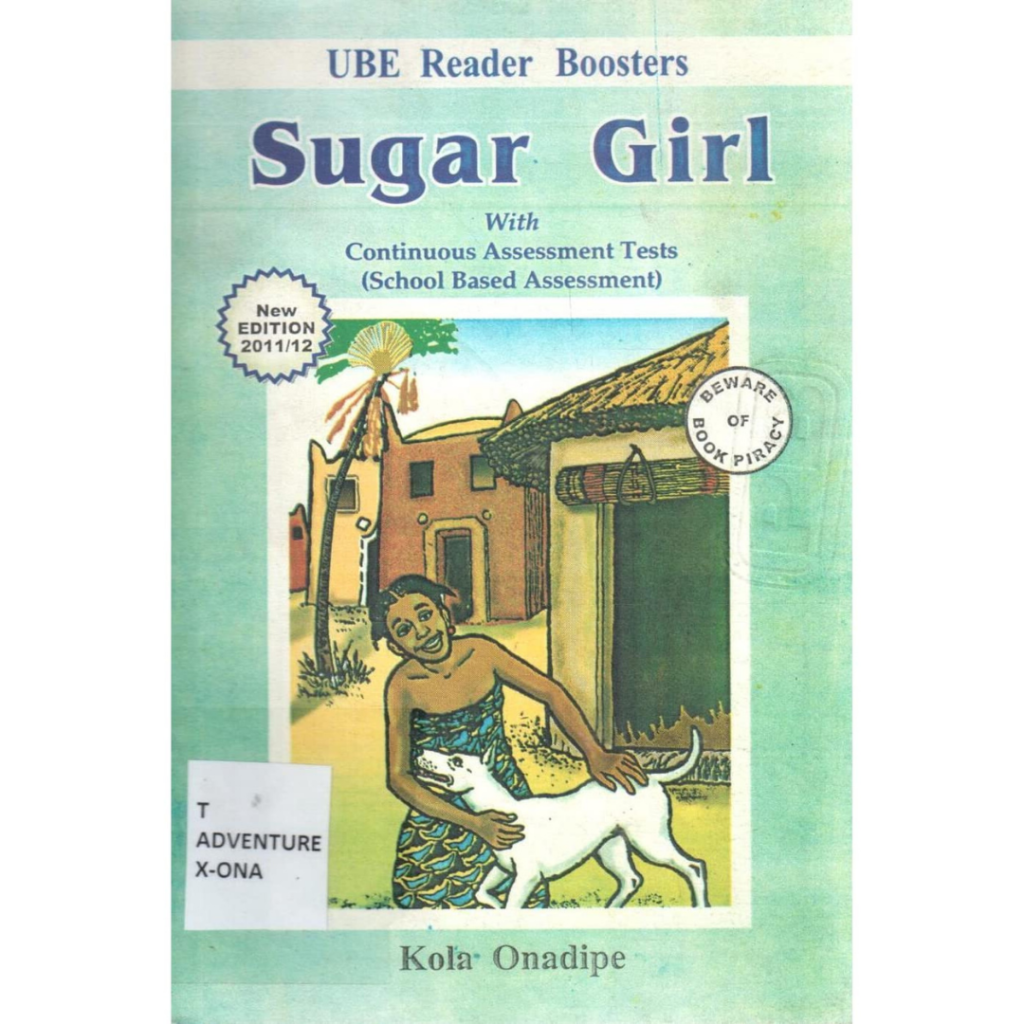
Travelling down memory lane unfolds yet another interesting piece, ‘Sugar Girl. Authored by Kola Onadipe, Sugar Girl features a young village girl, Ralia, popular known as ‘Sugar Gir,’ whose mother was blind, and her father had a broken back.
Ralia got lost one day when she went to the forest to fetch firewood. She suffered great ordeals in the hands of a wicked witch who offered her accommodation in exchange for her sweet melodious voice. She eventually ran away from the witch and was taken in by a hunter whose daughter Ralia became very fond of. One day, while playing, Ralia got accidentally knocked down by a Prince’s horse. The Prince took her to his house to nurse her. After her recovery, the Prince took her home to be reconciled with her parents.
It’s a beautiful book, the type you will never get tired of even after reading it a few times. The moral of the story is that we should always be cheerful irrespective of the circumstance we find ourselves.
-
The Lion and the Jewel
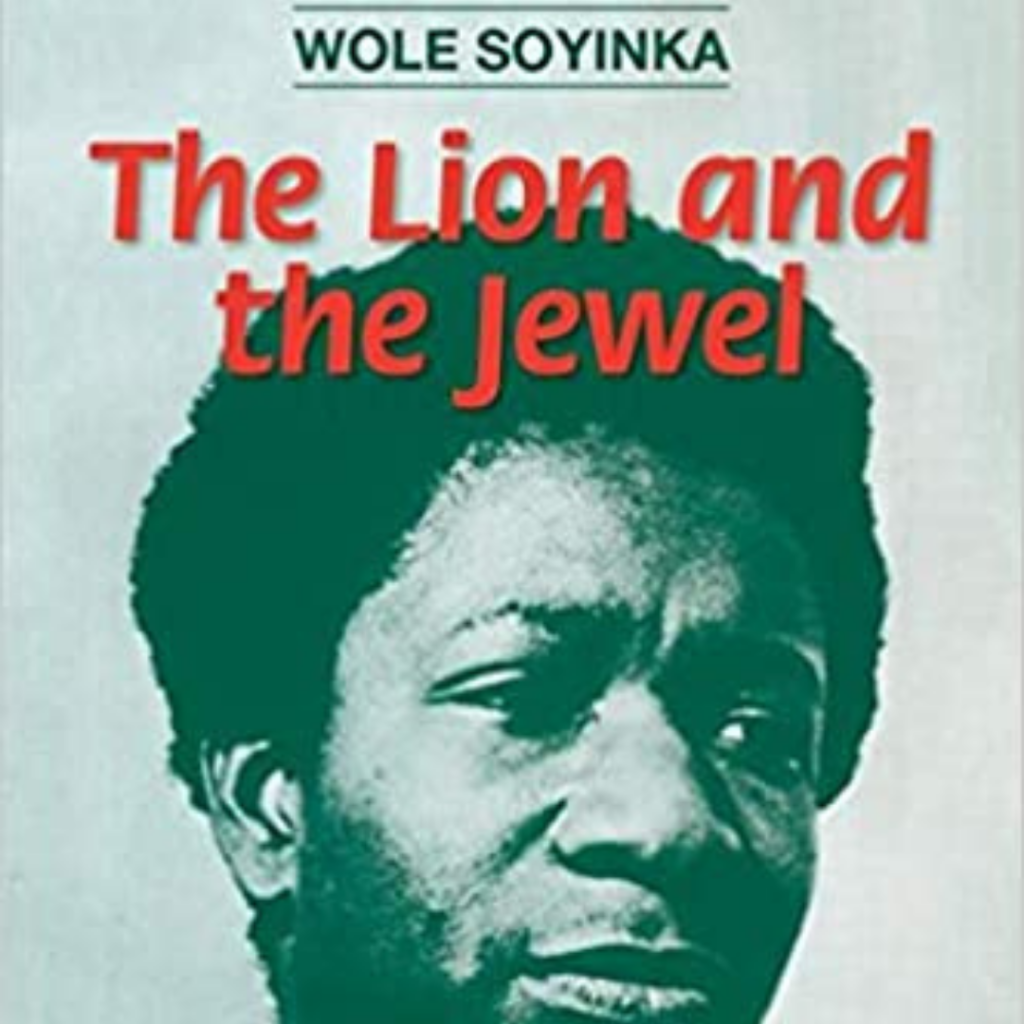
On another trip down memory lane, we find this play authored by Professor Wole Soyinka, the famous Nigerian writer, and poet. The play features Lakunle, an arrogant school teacher in love with Sidi, the village’s beautiful young lady full of Ego for receiving this title.
Lakunle thinks he can marry Sidi without paying her bride price as he thinks it’s an uncivilized custom to do that. Sidi, however, disagrees because that would only mean she was not married as a Virgin. On the other hand, Baroka, the Bále of Ilujinle, referred to as the Lion in the play, is also interested in Sidi and wants to woo her with his wealth and influence. In the end, Baroka defiled Sidi, who became his wife at age 62, after having 63 children.
This play is full of morals for young children. In the play, Soyinka teaches young children that overconfidence and pride can have adverse effects, as seen in Sidi’s behavior. The writer also taught that rumors (spread by Sadiku about Baroka being impotent) are often false and that believing them could cause more harm than good. The play also teaches that people can be deceitful, as in Baroka, and we should learn to filter thoughts before taking action.
-
The gods are Not to Blame
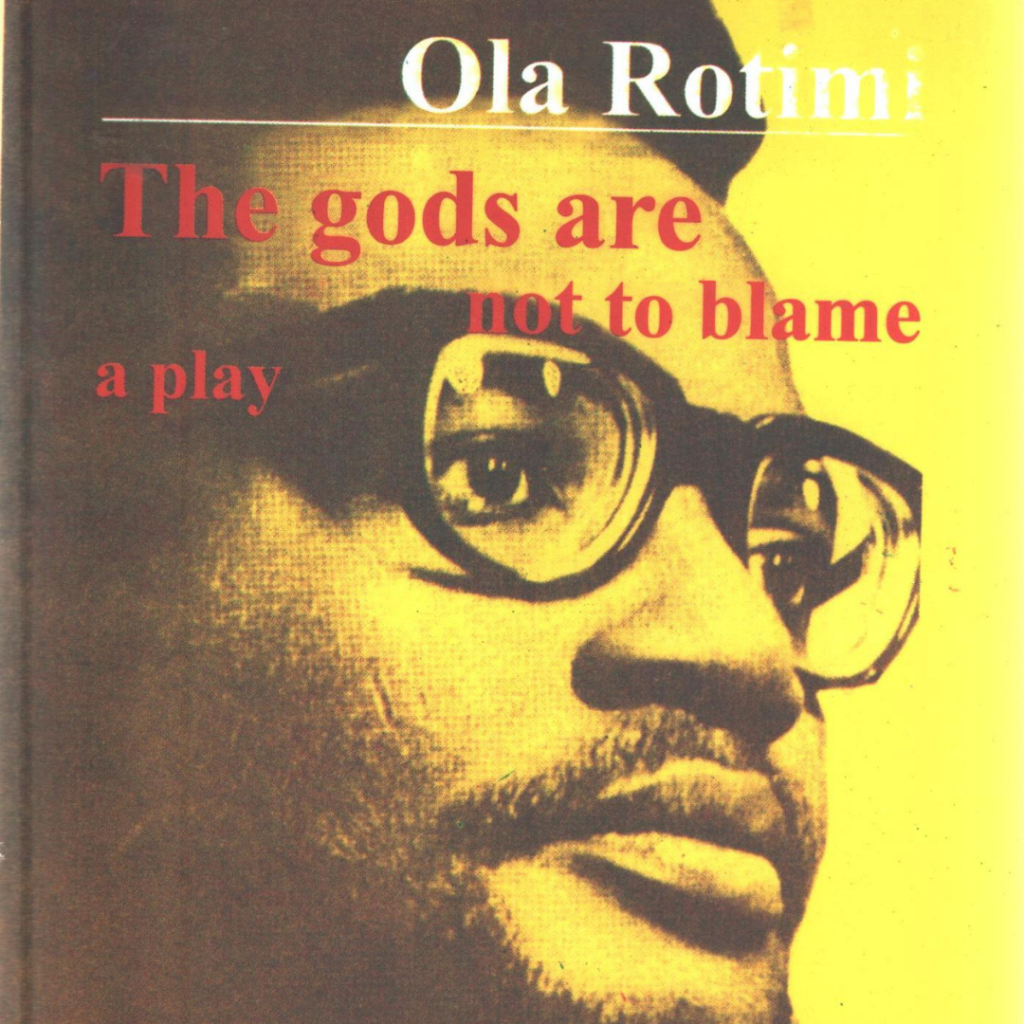
Finally, the last book Nigerians born in the 80s and 90s will know is ‘The gods are not to blame. The book was authored by Ola Rotimi and featured the dramatic tale of a young man named Odewale, who was born with a destiny he tried to run away from. At birth, it was prophesied by the soothsayer Fakunle that Odewale was going to kill his father (King Adetusa) and marry his mother (Queen Ojuola).
The king ordered Odewale to be killed, but his mother wrapped him in white clothes and hid him in a bush. He was picked and nurtured by a hunter and his wife and eventually returned to fulfill his destiny. In the end, his mother killed herself after hearing that the new king with whom she had four children was her son.
The moral of the story, however, centers on disobedience on the part of Odewale and Betrayal on the part of Gbonka (the king’s messenger who was sent to kill baby Odewale and stop the prophecies from being fulfilled).
Are you inspired by these books and would like to write and publish a book of your own? If yes, join us on WhatsApp to get smart tips on creating content for the right audience.
Conclusion
If you were born in the 80s and 90s, there’s no doubt you would have read some if not all of these books. Some of us even read each more than once or twice. These books were a constant reminder that the struggle to be a success in life continues. They are also books with great morals, truth, and discipline. These books go way down memory lane and inspire young children to be the best they can be. Most of these books have common morals, which were not far from what children were taught at home or religious gatherings by religious teachers.
Do we still have books that capture the reader’s mind yet teach morals in this manner? This is a question for yet another piece and another trip down memory lane.
More from Insight.ng:
12 Books Every Nigerian Woman Must Read
10 Captivating Throwback of Nigerian Celebrities
Parenting Tips for Nigerian: 7 Comprehensive Guide to Build a Happy Home
About Author
-
Rotimi Mercy is a Nigerian writer whose lifestyle centres around her family, teaching children and young adults, reading a book, or surfing the internet. This gave rise to her converting her speaking abilities into writing skills.
She writes on various niches such as; lifestyle, health, and Career.
Latest entries
 TechnologyFebruary 19, 2023Top 10 Best Cryptocurrencies to Invest in 2023
TechnologyFebruary 19, 2023Top 10 Best Cryptocurrencies to Invest in 2023 LifestyleJanuary 17, 2023Quick Tips on How To Grow Beards Faster and Get Hotter
LifestyleJanuary 17, 2023Quick Tips on How To Grow Beards Faster and Get Hotter LifestyleDecember 22, 2022How to Speak Good English and Improve Your Vocabulary
LifestyleDecember 22, 2022How to Speak Good English and Improve Your Vocabulary LifestyleDecember 5, 2022EXPLORING OGBUNIKE CAVE AND ALL THAT LIES BENEATH IT
LifestyleDecember 5, 2022EXPLORING OGBUNIKE CAVE AND ALL THAT LIES BENEATH IT


1 comment
There’s this novel that I just remembered but I couldn’t remember the title so, I was searching for it when I came across your link. Good ol’ memories!…the novel I was looking for was about a girl named Chioma who was betrothed to a man but the refused to see her through the university but chioma was determined to finish school and be a medical doctor….I don’t know if you have come across the storyline before, please let me know if you remember the title